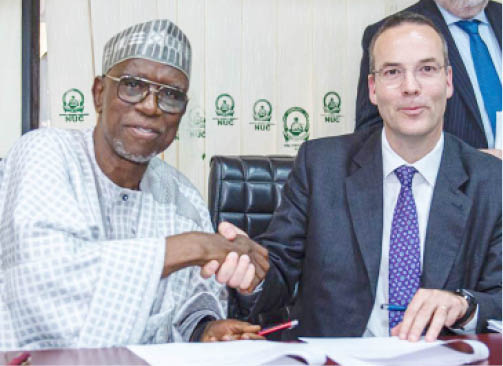British Council partners NUC to boost transnational education
The British Council and the National Universities Commission (NUC) have signed an MOU to further drive the provision of Transnational Education (TNE) to provide a wider choice of educational options to Nigerian students. Speaking, Global CEO of the British Council, Scott McDonald, announced the UK-Nigeria grant-funded partnership worth £600,000 aimed at supporting systematic change in […]

The British Council and the National Universities Commission (NUC) have signed an MOU to further drive the provision of Transnational Education (TNE) to provide a wider choice of educational options to Nigerian students.
Speaking, Global CEO of the British Council, Scott McDonald, announced the UK-Nigeria grant-funded partnership worth £600,000 aimed at supporting systematic change in 20 institutions and organisations in Nigeria.
- Kano explosion: Normalcy returns, parents keep kids away from schools
- No IDP will be disenfranchised in 2023 elections – INEC
He said the grant would be delivered through the regional higher education programme, Innovation for African Universities (IAU), which was designed and developed by the British Council as part of its “Going Global Partnerships” programme.
He further said it aimed to foster the culture of innovation and entrepreneurship within African universities and facilitate the development of skills required to build industries, companies, products and services.
Through the IAU platform, the British Council also funds a cohort of six partnerships that host a total of 20 enterprise support organisations and universities.
In his remarks, Executive Secretary of NUC, Professor Abubakar Adamu Rasheed, presented the commission’s six-point strategic plan for the reformation of the tertiary sector that would widen access and deepen the quality and use of ICT in Nigerian universities.
He also emphasised the empowerment of women across various facets of the university system as a core plank to the reformation exercise, noting that, “Today, we have more female vice chancellors than we have ever had, and we are getting more female students enrolled in universities.”
He added that, “The NUC is committed to reducing academic corruption in student application and grading, including student victimization and sexual harassment. A code of governance has been developed for private universities to be extended to public universities.”
In his response, Sir Smith noted that the UK university system faced the same challenge as Nigeria, noting that, “We also have too many graduates. Women are more likely to go to universities than for men to apply.”
According to Sir Smith, their task is to focus on five countries, with Nigeria being one of them, to establish sustainable long-term partnerships to allow the UK and Nigeria to work together.
He further said the UK government was excited about the TNE project that had been developed by the NUC.
He said, “We want to make sure that what we offer delivers quality across the sector to ensure students get the same level of education as they would have received if they went to the UK. In this scenario, both countries gain, no one loses.”
